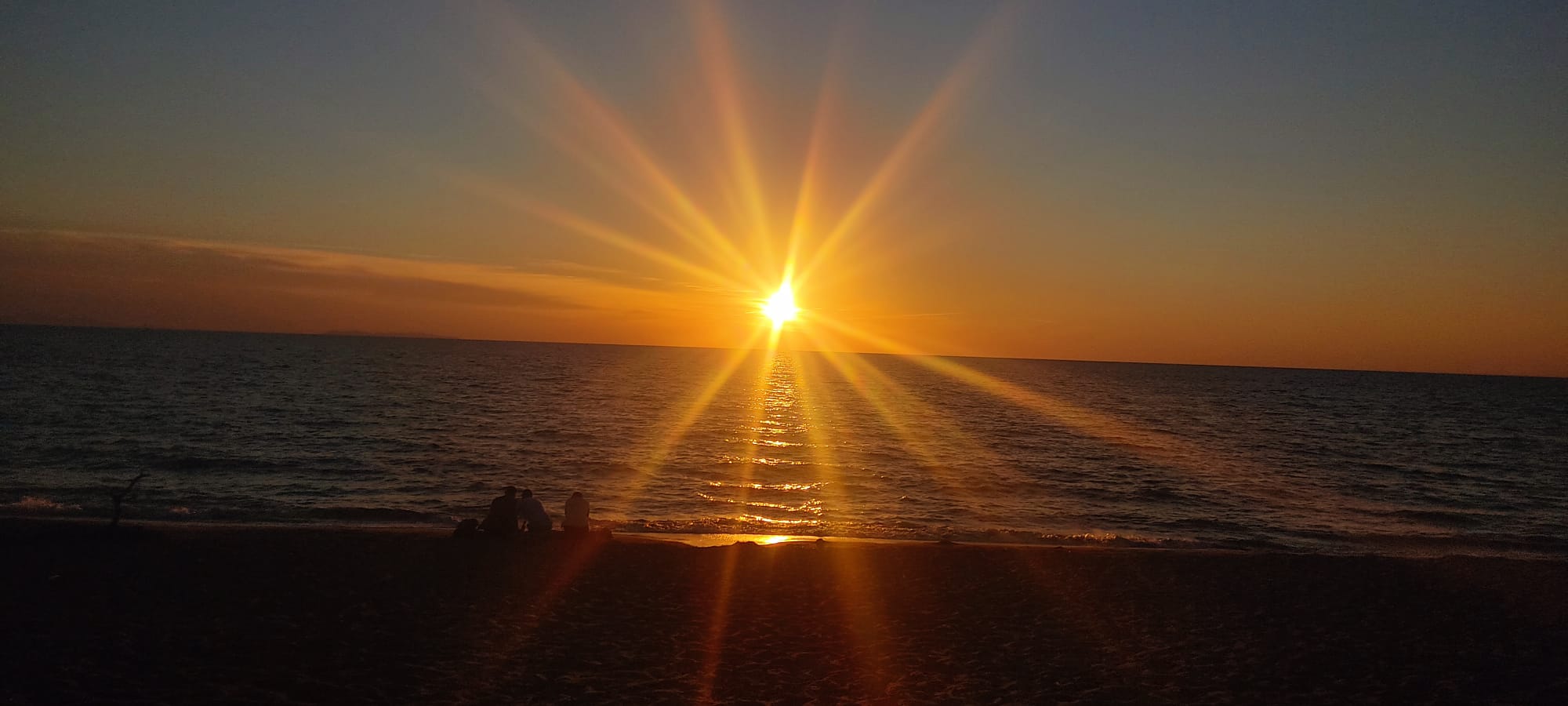Non-Academic Pieces
Relating and Ranting
Mahasweta Podder

I recently went on a trip to Spain with a friend of mine and as we were enjoying the sunset sitting on a cliff in Bilbao, he told me why don’t you write down your name here on a block of cement? I was not happy with that suggestion! My direct response was, I want to do something impactful, so that I do not have to inscribe my name on a block of cement (by myself) but that people would just recognize me and remember me.
I got back, and life went on hand in hand with the mundane, attending classes, and doing a lot of readings, until it was not the same anymore, and all the words, right there stuck in the epiglottis, wanted to run through, wanted to gush out of my system. I can no longer hold them. The more I read and learn, the more I learn to love. I realize, that is the whole damn point: LOVE.
Am I the first one who is saying this? No. Am I the first one who thinks about this? No.
Am I the first one who wants to go out there and change all the wrongdoings that societies, through ages and centuries, have been bullshitting us with? No. Am I asking something new? No. Am I writing something new? No.
But then the question is: What can I do new? What can I say, with what intent, in what mode of writing, and through what medium of expression so that I stand out? I make a mark of my own, and yet my standing out comes out with the intention of reaching out and touching all the wounded hearts out there. I want to stand out and yet connect. Without this sense of solidarity or interconnectedness, I am no one. Without recognition, without remembrance, I am no one. By default, I am dependent on “other” beings in my quest of bringing about a change, in this quest of standing out, in this quest to try to do things differently that will be impactful. There is no escape from this realization.
I cannot do anything new that is already not out there; the Big Bang theory also states: the whole of creation was done at once. We have all of it.
What we do not have, is what we choose to ignore, what we choose to silence, what we choose to leave at the door of metaphysics, what we choose to ‘invisibilize’, however, this very choice opens a scope for our learning, for our growth, for our depth, for our development, for our exploration, for our risk of knowing the unknown, for us to bridging the gap.
I know I am not doing anything new; I know I am a crazy-queer-gay collection of my predecessors and my futurists. Why do I say this? Cause all of consciousness is related, everything in this whole damn fucking world is related, yet we all breathe with this quest of standing out, to do things differently? Only this time, the difference doesn’t mean altercations, but it focuses on bringing about more unity, more collectivity, more interconnectedness, more rawness and openness, and more courage to put our hearts out there, and wear our hearts on our sleeves.
I am a continuation of all the silences, pauses, failures, hyphens, and resonances that all before me have talked about and all after me will ever express.
What can I do differently?
Well, let me think!
I do not want to categorize, I say! Let me rewind and take you back to a sentence I wrote while describing myself: crazy-queer-gay. What did you think about it? By crazy, did I mean mad? By queer, weird? By gay, my sexual orientation?
I did not mean any of this. Then what did I MEAN? Can language ever let me win? Can language ever stop twisting my truth? Can language translate my soul without corrupting it? I wonder.
Language is my home and my worst enemy. As much as it constructed my world for me, it destroyed my peace. It took away a simple way of be-ing: breathe-ing! It gave me a voice and the will to express but also left me empty, drained, and struggling. If language constructs my world, why is it a half-hearted construction? If language helps me reach a place that I call my home, language alienates me from it as well. I try to breathe in the in-betweenness of language that is beautiful yet haunting and monstrous.
I am afraid of language; I am afraid of the world language constructs for me! I am afraid of not knowing the whole; I am afraid of half-truths. Language neither gives me a holistic definition of the home nor the prison. I keep gravitating at this in-between space. I keep being a stranger. I think about terms like strategic essentialism, positionality, and politics of location, and it all seems the same. Just add some fancy word to a previous term, or create a new term and there you go, you have something new. We are just moving in circles (I might as well call it a vicious cycle). The theory is so repetitive!
All the theorists say the same things, just in different ways through their chosen field of study and their distinct way of experiencing it.
God damn nothing is new; it is just out there, hanging in the universe already. We pick the ideas in our own way at our own pace, with the ones that help define us. But definitions can never be complete, so let me keep it moving, let me keep it traveling, let me keep it embarking and encountering.
I look at love as a modus operandi, and the blankness of love stares right back at me. What is LOVE? It is you and me. Yes, You and I are different! But You and I exist; we exist. Existence exists because of love. The I, that I am, is the I, I see in you. We are all an aggregation of I’s. We are all “self’s” and there is no “other” here. And we all are love. Love is active. Love is the only agency that makes me envision myself as a tree or a bird, a mountain or a sea. Love gives me the power to think beyond the beginning and end of my body, made of flesh and blood, beyond the skin, towards the objects that are actual subjects of my agency and plays a role in making me, inherently me. The nature of my love within calls out the nature of my love without. And I know this separation, this difference, is illusory.
Am I saying anything new? No.
Then what can I do new? This piece is an ongoing dialogue with myself; neither am I fully conscious nor aware of these words; they flow, crash, with every full stop, and then the wave of words rises again. Am I being creative? I know not. Am I again unknowingly belonging to the tribe of “authors of color” who make their narrative personal, who take the agency of autos in an autobiography? I know not. It is even more intriguing because as these words outrun me, and I run out of words, I wrote this piece after reading Anzaldua’s (Un)natural bridges, (Un)safe spaces, Trinh. T Minh-ha’s Other Than Myself, My Other Self, and Keating’s Transformation Now.
Bibliography
- Gloria Anzaldúa (2009). “(Un)natural bridges, (un)safe spaces” in The Gloria Anzaldúa Reader (ed. by AL. Keating). Durham: Duke University Press, pp. 243-248.
- Ana Louise Keating (2013). “Beyond intersectionality: Theorizing interconnectivity with/in This Bridge Called My Back: Writings by Radical Women of Color” in Transformation Now. Durham: Duke University Press, pp. 29-59.
- Trinh T. Minh-ha (2011). “Other Than Myself, My Other Self” in elsewhere, within here: immigration, refugeeism and the boundary event. London/New York: Routledge, pp. 27-42.
Author
Mahasweta is doing a joint Masters in Gender Studies from Utrecht University and the University of York. Her research interests are Comparative literature mainly focussing on Bengali, Urdu, Hindi and Tamil texts; Translation Studies; Digital Humanities; Postcolonial and Decolonial Theory.

